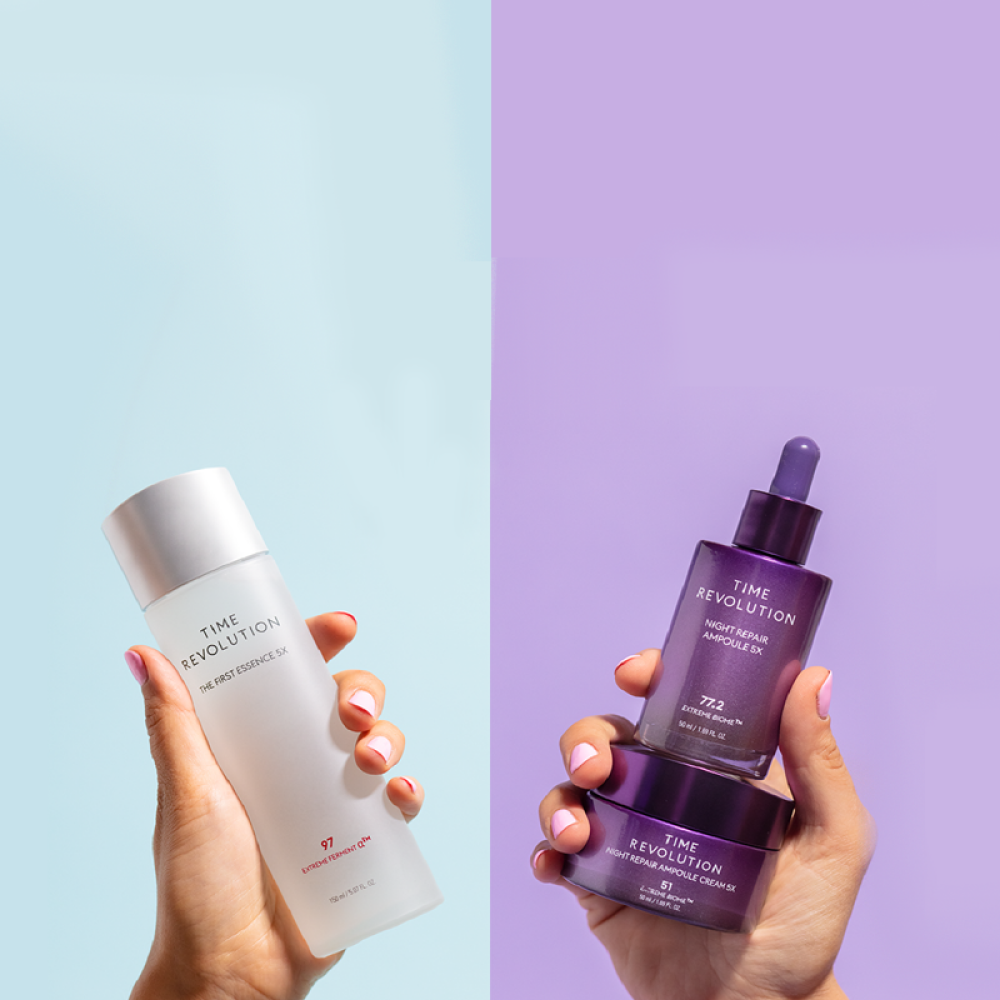Hyaluronic acid and vitamin C are two popular skincare ingredients known for their beneficial effects on the skin. Many people are familiar with the individual benefits of these ingredients, but there is often confusion about whether they can be used together in a skincare routine. In this article, we will explore the science behind hyaluronic acid and vitamin C, their benefits for the skin, the potential synergy between the two, and any risks or side effects to consider.
Understanding Hyaluronic Acid and Its Benefits
Hyaluronic acid is a naturally occurring substance in the body that has the ability to retain moisture. In skincare, it is widely celebrated for its hydrating properties. When applied topically, hyaluronic acid can help to replenish and lock in moisture, resulting in plumper, smoother, and more youthful-looking skin.
Aside from its hydrating effects, hyaluronic acid also has antioxidant properties that can help protect the skin from environmental damage. It is also known to support collagen production, which is essential for maintaining the skin's elasticity and firmness.
The Science Behind Hyaluronic Acid
Hyaluronic acid works by attracting and binding water molecules, holding up to 1000 times its weight in water. This ability to retain moisture is what makes it an excellent hydrating ingredient for the skin. When applied topically, hyaluronic acid forms a thin film on the skin's surface, reducing moisture loss and creating a protective barrier.
But did you know that hyaluronic acid is not only beneficial for the skin on your face? It can also be used to hydrate and rejuvenate other parts of your body, such as your lips and hands. By incorporating hyaluronic acid-infused products into your skincare routine, you can enjoy the benefits of this powerful ingredient from head to toe.
ALT IMG TEXT: Woman Looking in Magnifying Mirror
Additionally, hyaluronic acid has been found to promote wound healing and reduce inflammation, making it beneficial for those with sensitive or acne-prone skin. Its lightweight and non-greasy texture also makes it suitable for all skin types.
Why Hyaluronic Acid is Essential for Skin Health
As we age, the natural production of hyaluronic acid in our bodies decreases, leading to drier and less elastic skin. By incorporating hyaluronic acid into your skincare routine, you can help replenish the lost moisture and improve the overall health and appearance of your skin.
Regular use of hyaluronic acid can help to minimize fine lines and wrinkles, even out skin tone, and improve the skin's texture. It is a versatile ingredient that can be found in various skincare products, including serums, moisturizers, and face masks.
Furthermore, hyaluronic acid has been shown to have long-lasting effects on the skin. Unlike some other skincare ingredients that provide temporary hydration, hyaluronic acid works to improve the skin's moisture levels over time, resulting in sustained hydration and a more radiant complexion.
So, whether you're looking to combat dryness, reduce the appearance of wrinkles, or simply maintain a healthy and youthful-looking complexion, hyaluronic acid is a skincare ingredient worth incorporating into your daily routine. Its hydrating and rejuvenating properties make it a true game-changer in the world of skincare.
The Power of Vitamin C for Skin
Vitamin C, also known as ascorbic acid, is a powerhouse ingredient in skincare. It is a potent antioxidant that helps protect the skin from free radical damage caused by environmental stressors such as pollution and UV radiation.
But the benefits of vitamin C for the skin don't stop there. This essential nutrient also aids in the repair of damaged skin cells and promotes overall skin health. By neutralizing free radicals, vitamin C helps prevent oxidative stress and inflammation, which are key factors in premature skin aging.
The Role of Vitamin C in Skin Care
In addition to its antioxidant properties, vitamin C plays an important role in collagen synthesis. Collagen is a structural protein that holds our skin together and gives it strength and elasticity. Vitamin C helps promote collagen production, which can lead to firmer and more youthful-looking skin.
Moreover, vitamin C is known for its ability to improve skin hydration and moisture retention. By strengthening the skin's barrier function, vitamin C helps lock in moisture and prevent transepidermal water loss, resulting in a plump and supple complexion.
Furthermore, vitamin C has brightening properties, making it effective in reducing the appearance of dark spots, hyperpigmentation, and uneven skin tone. It can also help to lighten acne scars and promote a more radiant complexion.
Benefits of Vitamin C for Skin Health
Regular use of vitamin C in your skincare routine can provide a range of benefits. Aside from its antioxidant and collagen-boosting effects, vitamin C can also help protect the skin against sun damage, reduce inflammation, and improve the skin's overall texture and tone.
When used in conjunction with a broad-spectrum sunscreen, vitamin C can enhance the skin's protection against harmful UV rays, reducing the risk of sunburn and premature aging.
Combining Hyaluronic Acid and Vitamin C
Now that we understand the individual benefits of hyaluronic acid and vitamin C, let's explore whether these two ingredients can be used together in a skincare routine.
The Synergy Between Hyaluronic Acid and Vitamin C
Hyaluronic acid and vitamin C can indeed be used together in a skincare routine. In fact, their combined use can provide enhanced benefits for the skin.
When applied together, hyaluronic acid can help to hydrate and plump the skin, while vitamin C works to brighten and protect the skin from environmental damage. The combination of these two ingredients can result in a more youthful and radiant complexion.
But what exactly makes this combination so powerful? Let's dive deeper into the science behind it.
Hyaluronic acid is a naturally occurring substance in our skin that has the ability to hold up to 1,000 times its weight in water. By applying hyaluronic acid topically, we can replenish the moisture levels in our skin, resulting in a plumper and more hydrated complexion.
Vitamin C, on the other hand, is a potent antioxidant that helps to neutralize free radicals and protect the skin from oxidative stress. It also plays a crucial role in collagen synthesis, which is essential for maintaining the skin's elasticity and firmness.
When these two ingredients are combined, they work synergistically to provide a comprehensive approach to skincare. Hyaluronic acid hydrates and plumps the skin, while vitamin C brightens and protects it. The result is a more youthful, radiant, and resilient complexion.
How to Properly Combine These Two Ingredients
To effectively combine hyaluronic acid and vitamin C in your skincare routine, it is important to follow a few guidelines:
- Apply hyaluronic acid first: Start by applying a hyaluronic acid serum or moisturizer to clean, dry skin. This will help to replenish and lock in moisture, preparing the skin for the next step.
- Follow with vitamin C: After allowing the hyaluronic acid to fully absorb into the skin, follow with a vitamin C serum or moisturizer. This will help to brighten and protect the skin, while also providing additional hydration.
- Use sunscreen during the day: It is important to note that vitamin C can make the skin more sensitive to sunlight. Therefore, it is crucial to apply a broad-spectrum sunscreen with a high SPF to protect the skin from harmful UV rays.
By following these simple steps, you can incorporate both hyaluronic acid and vitamin C into your skincare routine effectively, maximizing the benefits of both ingredients.
Remember, consistency is key when it comes to skincare. Incorporating hyaluronic acid and vitamin C into your daily routine can help you achieve a healthier, more radiant complexion over time.
Potential Risks and Side Effects
While hyaluronic acid and vitamin C are generally safe for most people, it is important to be aware of potential risks and side effects.
It's crucial to note that while these ingredients offer numerous benefits for the skin, some individuals may be more sensitive and prone to adverse reactions. Understanding how to identify and address these risks is key to maintaining healthy skin.
Understanding the Possible Risks
Some individuals may experience allergic reactions or skin irritations when using hyaluronic acid or vitamin C. It is always recommended to perform a patch test before incorporating new skincare products into your routine. If any redness, itching, or irritation occurs, discontinue use and consult a dermatologist.
In addition to allergic reactions, prolonged or incorrect use of hyaluronic acid or vitamin C products may lead to skin sensitivities. It's essential to be mindful of your skin's response and adjust your skincare regimen accordingly to prevent any long-term damage.
How to Mitigate Potential Side Effects
To minimize the risk of side effects, follow these tips:
- Choose high-quality products: Opt for reputable skincare brands that use high-quality, dermatologist-tested ingredients.
- Start with low concentrations: If you are new to using hyaluronic acid or vitamin C, start with lower concentrations to allow your skin to adjust.
- Gradually increase frequency: Begin by using hyaluronic acid and vitamin C products every other day, gradually increasing usage as your skin tolerates it.
- Avoid combining with other potentially irritating ingredients: Avoid using hyaluronic acid or vitamin C products with other potentially irritating ingredients, such as retinol or exfoliating acids, unless advised by a dermatologist.
By being proactive and attentive to your skin's needs, you can enjoy the benefits of hyaluronic acid and vitamin C while minimizing the chances of experiencing any adverse effects. Remember, skincare is a personal journey, and what works for one person may not work for another, so always listen to your skin and seek professional advice when needed.
Frequently Asked Questions About Hyaluronic Acid and Vitamin C
Can You Use Hyaluronic Acid and Vitamin C Together?
Yes, you can use hyaluronic acid and vitamin C together in your skincare routine. As discussed earlier, these two ingredients can complement each other and provide enhanced benefits for the skin.
When Should You Apply These Ingredients?
The recommended order of application is to first apply hyaluronic acid to clean, dry skin, followed by vitamin C. However, it is important to note that everyone's skin is different, and you may need to experiment to find the routine that works best for you. If you have any concerns or specific skin conditions, it is advisable to consult a dermatologist for personalized advice.
Conclusion
In conclusion, hyaluronic acid and vitamin C are both powerful ingredients that can greatly benefit the skin. When used together, they can provide enhanced hydration, brightening, and protection against environmental damage. By following the proper guidelines for combining these ingredients and being aware of any potential risks or side effects, you can create a skincare routine that promotes healthy and radiant skin. Remember to start with low concentrations, perform patch tests, and consult a dermatologist if needed. With the right approach, you can enjoy the benefits of hyaluronic acid and vitamin C in your skincare routine.








